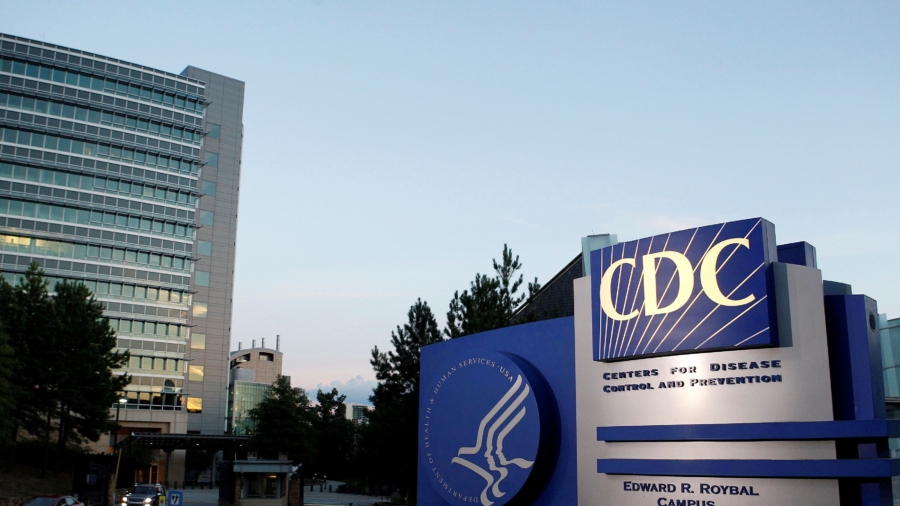The Centers for Disease Control and Prevention (CDC) has officially altered its recommended COVID-19 vaccination schedule in a bid to address concerns about the elevated rate of heart inflammation seen among many groups who have gotten a vaccine.
The two most widely administered COVID-19 vaccines in the country are made by Moderna and Pfizer. Recipients are advised to get a two-dose primary series of each.
Before the new update, people were told to get a second Pfizer shot 21 days after the first, or a second Moderna shot 28 days after the first.
The new guidance says people can wait as long as eight weeks between the first and second jabs.
Lengthening the interval is a response to the higher-than-expected rates of myocarditis and pericarditis, two types of heart inflammation, found among men under 40 and some females after they’d gotten a second dose of the Pfizer or Moderna jabs.
“While absolute risk remains small, the relative risk for myocarditis is higher for males ages 12-39 years, and this risk might be reduced by extending the interval between the first and second dose,” the CDC says on its website.
Myocarditis alone after Moderna’s second dose was reported at a rate of 68 per million and after Pfizer’s second dose at a rate of about 47 per million in males 18 to 39, according to a government analysis of data from the Vaccine Safety Datalink, a surveillance system. Several studies have pegged the risk in some groups of myocarditis following vaccination as higher than from COVID-19 itself, leading some experts to call for a partial pause of at least Moderna’s vaccine, if not Pfizer’s as well, but U.S. officials have not heeded those calls.
The CDC says it’s verified no post-vaccination deaths caused by myocarditis, but autopsies of two young men performed by state experts two young men said the vaccines appeared to lead to their deaths.
Some studies indicate that the risk may be reduced by extending the intervals, and Canada and other countries changed the recommended intervals months ago.
“The longer interval resulted in lower myocarditis rates, whereas the shorter interval had higher myocarditis and pericarditis rates,” Dr. Bryna Warshawsky of the Public Health Agency of Canada told a CDC vaccine advisory panel in a recent meeting.
There’s also hope that extending the intervals will trigger better immune system responses. Vaccine effectiveness goes down over time, and has proven particularly poor against the Omicron variant of the CCP (Chinese Communist Party) virus.
The widening interval “maybe would reduce the incidence of having any adverse effects, especially myocarditis,” Dr. Peter Gulick, an associate professor of medicine at Michigan State University, told The Epoch Times. “Plus, there’s some evidence in the past that in certain groups that are young and or otherwise healthy, if you do extend it out you might get a better antibody response because what you do is you allow your immune system to mature a little bit from the first dose, and it gets to mature so that we get the second dose, it’s not too early where the immune system hasn’t matured enough.”
The new guidance applies to Americans 12 or older who haven’t already received a primary series. About 73 percent of Americans 12 or older have gotten a primary series as of Feb. 22, according to data reported by jurisdictions and health care providers to the CDC.
People with weakened immune systems should stick to the previous recommendations, as should adults 65 or older and “others who need rapid protection due to increased concern about community transmission or risk of severe disease,” the CDC says.
Those who do wait longer to get their second shot will have their recommended booster dose, should they decide to get one, pushed back. The vaccination schedule advises all Americans 12 and up to get a booster at 5 months or later after their second shot.
The change came months after the data were available supporting a shift, some experts noted, with multiple European countries extending the intervals last year.
Dr. Walid Gellad, professor of medicine at the University of Pittsburgh, called the update “months late” but added that it was “good to see this now as official guidance.”
An 8-week interval “may be optimal for some people … especially for young men,” he wrote on Twitter.
Dr. Peter McCullough, a cardiologist who formerly worked at Baylor University Medical Center, said that extending the intervals wasn’t enough to restrict the risks of vaccine-induced myocarditis.
The only method “is to use restrictive sampling,” McCullough told The Epoch Times in an email. “That means to exclude the population who is at risk for the problem. Based upon the published literature that would exempt men below age 70, women below the age of 50 years, and those with underlying myocardial and pericardial disease. This would get us back to the population that has theoretical benefits of vaccines if they were targeted against future variants, that is, our high-risk seniors.”
From The Epoch Times

